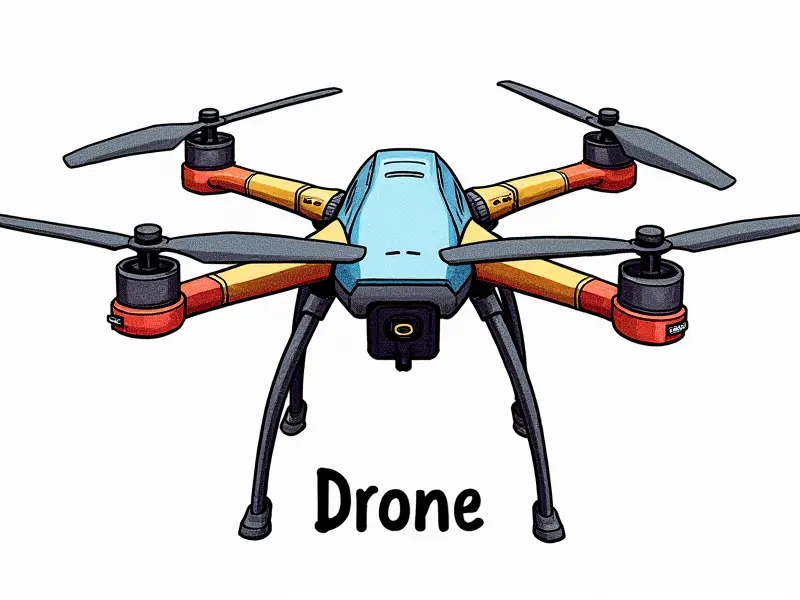Does an FPV drone need a GPS?

Do FPV Drones Really Need GPS?
First-person view (FPV) drones have become increasingly popular among hobbyists and professionals alike. These high-speed, maneuverable aircraft offer thrilling experiences for pilots who enjoy the adrenaline rush of racing or capturing stunning aerial footage. However, one question that often arises is whether FPV drones need to be equipped with GPS technology.
Benefits of Adding GPS to Your FPV Drone
The inclusion of GPS in an FPV drone offers several advantages:
- Return-to-Home (RTH) Functionality: This feature allows the drone to automatically return to its launch point when the signal is lost or the battery runs low, ensuring safe recovery.
- Precision Flight Paths: GPS helps in maintaining accurate flight paths and altitudes, making it easier for pilots to navigate complex terrains and execute precise maneuvers.
- Battery Management: With GPS, the drone can monitor its position relative to home base, optimizing battery usage and extending flight time.
Why Some FPV Pilots Skip GPS
Despite these benefits, many FPV enthusiasts choose not to use GPS for several reasons:
- Weight Considerations: Adding GPS modules can increase the drone's weight, affecting its agility and speed.
- Battery Drain: GPS functionality consumes additional power, potentially reducing flight time.
- Simpler Setup: Some pilots prefer a more straightforward setup without the added complexity of integrating GPS technology.
Does GPS Enhance FPV Drone Performance?
The impact of GPS on FPV drone performance is debatable. While it can improve navigation and safety, the reliance on GPS may also limit the pilot's ability to fly in challenging environments or during competitive races where real-time adjustments are crucial.
Should I Invest in GPS for My FPV Drone?
The decision to invest in GPS depends on your specific needs:
- If you prioritize safety and navigation accuracy, consider adding GPS.
- If you prefer high-speed racing or want more control over flight paths, a GPS-free setup might be better suited for your style of flying.
The Case Against GPS in FPV Drones
Opponents argue that:
- GPS can introduce lag and delay, which may affect the responsiveness required during high-speed maneuvers.
- It can be less reliable in urban or heavily forested areas, where signal interference is common.
Alternatives to GPS for FPV Pilots
For those who prefer not to use GPS, consider these alternatives:
- Magnetometers and Barometers: These sensors help with orientation and altitude control without relying on satellite signals.
- Visual Positioning Systems (VPS): Utilizing cameras for precise indoor or low-light navigation.
Can You Fly FPV Without GPS?
Absolutely! Many skilled pilots fly FPV drones without GPS and achieve remarkable results. It requires practice, skill, and familiarity with your drone's capabilities.
Must-Have Features for FPV Drones
Regardless of whether you choose to use GPS or not, here are some essential features:
- Battery Monitoring Systems (BMS): Ensure you always know the battery status.
- FPV Camera Quality: High-resolution cameras provide better visibility and a smoother flying experience.
- Flight Controllers with Advanced Algorithms: Enhance stability and maneuverability during high-speed flights.
Is GPS Necessary for FPV Racing?
In competitive racing scenarios, the need for GPS is minimal. Pilots rely more on quick reflexes and precise control over their drones than on navigational aids.
Benefits of GPS-Free FPV Drone Flying
Flying without GPS offers several benefits:
- Better Control: Pilots can make real-time adjustments based on immediate feedback from the drone's sensors and their own judgment.
- Increased Agility: Lighter drones with fewer onboard systems are more maneuverable, allowing for faster speeds and tighter turns.
Conclusion
The decision to equip your FPV drone with GPS ultimately depends on your flying style and priorities. While GPS can enhance safety and navigation accuracy, it may also add weight and complexity that some pilots prefer to avoid. By understanding the pros and cons, you can make an informed choice that best suits your needs as an FPV pilot.

